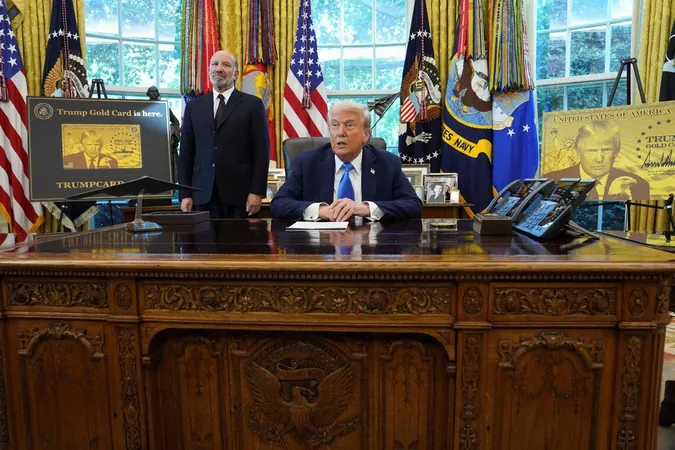
New Collaborative Aims to Tackle Public Health Amid Controversy
2025-09-19
Author: Siti
Seven States Unite for Public Health Solutions
In a bold move towards enhanced public health, seven Northeast states and New York City have joined forces, forming the Northeast Public Health Collaborative (NPHC). This coalition aims to establish evidence-based health recommendations, particularly focusing on vaccines as communities face ongoing health challenges.
A Response to Vaccine Controversies
This collaborative comes as the nation grapples with mixed messages about vaccine safety and accessibility. Health and Human Services Secretary Robert F. Kennedy Jr. has stirred debate by suggesting limits on COVID-19 vaccine access and questioning the value of childhood immunizations.
Collaboration Announced for Trust and Safety
The NPHC's inception was formally announced recently, although discussions began earlier this year among officials in Connecticut, Maine, Massachusetts, New Jersey, New York, Pennsylvania, Rhode Island, and New York City. The goal? To reignite trust in public health, address health threats head-on, and bolster community confidence in vaccines and scientifically-backed medicine.
According to the group, their ultimate mission is to safeguard the health and well-being of all residents through scientifically informed strategies, ensuring equitable access to healthcare services.
Vermont and D.C. Take Action on COVID Vaccines
While collaborations are forming, states like Vermont and the District of Columbia are taking significant steps to guarantee vaccination access amidst growing concerns. Vermont's Governor Phil Scott announced initiatives to provide COVID-19 vaccinations via primary care providers and pharmacies, stating that those desiring a vaccine should have unhindered access.
Similarly, the D.C. city council recently passed a law allowing residents to obtain COVID vaccines from local pharmacies without needing a prescription.
New Insights on Long COVID Among Older Adults
In a related health study, researchers analyzed data from over 10,000 COVID-19 patients across 33 states, revealing intriguing findings about long COVID symptoms. Those aged 70 and older exhibited fewer long COVID symptoms than younger counterparts, challenging previous assumptions about the impact of the virus on older populations.
The study, published in the Journal of the American Geriatrics Society, showed that symptoms were most prevalent in individuals aged 40 to 59, while only 13% of those aged 70 and older reported such issues. This research highlights a crucial need for tailored healthcare approaches for different age groups affected by COVID-19.
In summary, as the Northeast Public Health Collaborative strives to build community trust and improve vaccine access, new research continues to unfold, revealing the complexities of COVID-19's impact across age groups.


 Brasil (PT)
Brasil (PT)
 Canada (EN)
Canada (EN)
 Chile (ES)
Chile (ES)
 Česko (CS)
Česko (CS)
 대한민국 (KO)
대한민국 (KO)
 España (ES)
España (ES)
 France (FR)
France (FR)
 Hong Kong (EN)
Hong Kong (EN)
 Italia (IT)
Italia (IT)
 日本 (JA)
日本 (JA)
 Magyarország (HU)
Magyarország (HU)
 Norge (NO)
Norge (NO)
 Polska (PL)
Polska (PL)
 Schweiz (DE)
Schweiz (DE)
 Singapore (EN)
Singapore (EN)
 Sverige (SV)
Sverige (SV)
 Suomi (FI)
Suomi (FI)
 Türkiye (TR)
Türkiye (TR)
 الإمارات العربية المتحدة (AR)
الإمارات العربية المتحدة (AR)